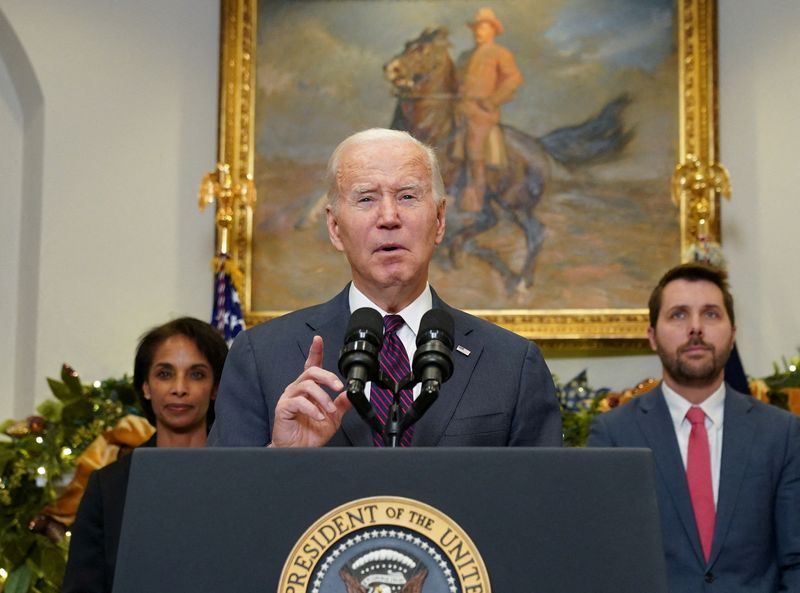By Daniel Wiessner
(Reuters) - Business groups have told the Biden administration that its proposal to limit U.S. companies' use of independent contractors is not in line with federal wage law, previewing legal challenges that are likely to come once the rule is finalized.
The U.S. Department of Labor received more than 50,000 comments on the October proposal ahead of a Tuesday night deadline, a staggering number that underscores the broad impact the rule will have on industries including the gig economy, trucking and manufacturing.
The proposal, which will likely be finalized in the spring, would require that workers be considered employees, entitled to more benefits and legal protections than contractors, when they are "economically dependent" on a company.
It would replace a Trump administration regulation that says workers who own their own businesses or have the ability to work for competing companies, such as a driver who works for Uber (NYSE:UBER) and Lyft (NASDAQ:LYFT), can be treated as contractors.
Many labor unions, worker advocacy groups and Democrats support the proposal and submitted comments claiming worker misclassification is rampant in many industries including trucking, delivery, construction and home healthcare and particularly harms low-income immigrant and minority workers.
Several major business groups including the U.S. Chamber of Commerce and National Federation of Independent Business said the Labor Department had not explained the abrupt change proposed less than two years after the Trump-era rule took effect.
That claim will likely be a focal point in lawsuits challenging the rule. The federal law regulating rulemaking by agencies requires them to explain why existing rules are inadequate and must be replaced.
Groups also said the way the proposal defines employment is broader than under federal wage law, and that the Labor Department underestimated the cost of the rule to employers.
"The proposed rule is arbitrary and capricious and, therefore, likely to be rejected by the first federal court to evaluate its enforceability," said the Flex (NASDAQ:FLEX) Association, which represents Uber, Lyft and other gig economy companies.
The left-leaning Center for American Progress, citing a 2021 study, said the Trump administration rule has cost workers $3.7 billion and reduced social insurance funds such as workers' compensation and unemployment insurance by $750 million.
